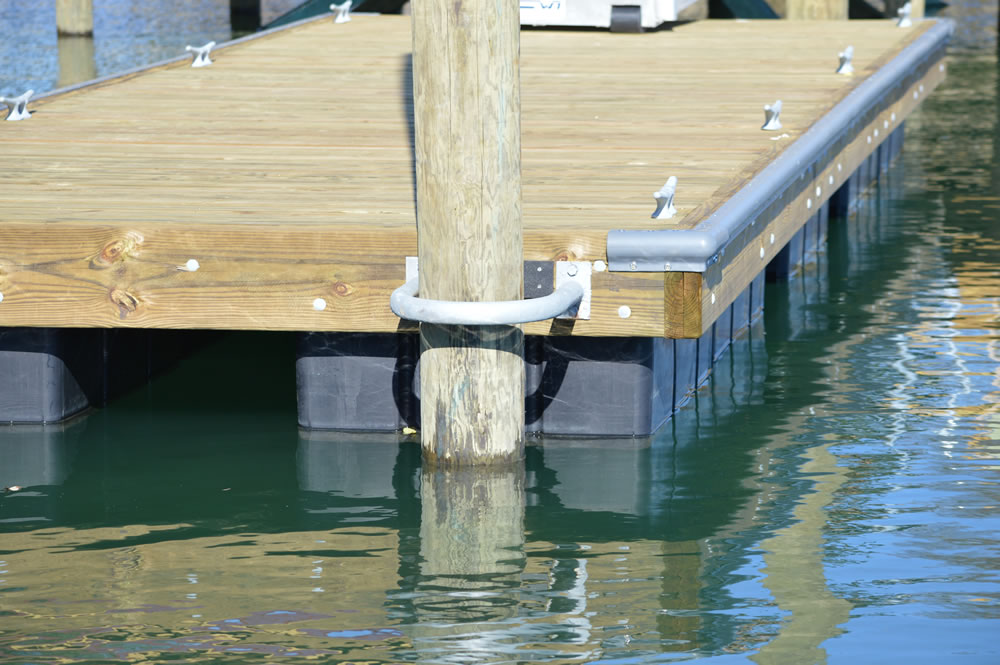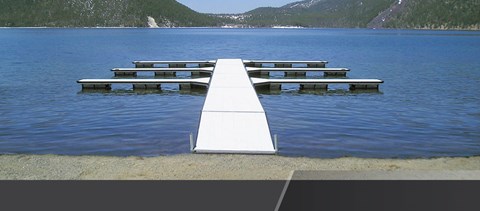Discover the Range of Floating Dock Solutions Designed to Suit Every Seafarer's Requirements
Discover the Range of Floating Dock Solutions Designed to Suit Every Seafarer's Requirements
Blog Article
Floating Docks: The Perfect Selection for Versatile Water Gain Access To
Floating docks present an engaging option for a range of water access requires, using adaptability that transcends typical mooring alternatives. The modular nature of floating docks promotes personalization, catering to details demands.
Benefits of Floating Docks
Floating docks deal various advantages that boost water gain access to for various applications. Their capacity to fluctuate with transforming water levels makes them particularly useful in atmospheres with fluctuating trends or seasonal variations. This versatility ensures that vessels can conveniently anchor without concern for the water's deepness, providing a reliable system for recreational, industrial, and industrial usages.
In addition, floating docks are often built from sturdy products that resist rust, making them ideal for long-term usage in aquatic atmospheres. Their installation is commonly less intrusive than traditional fixed docks, decreasing the ecological influence and promoting quicker implementation (dock company). This versatility enables much easier relocation or reconfiguration according to user requirements or ecological modifications
Safety is one more vital advantage; floating docks can offer steady access for individuals getting off or boarding from boats and decrease the risk of accidents associated with unstable surface areas. They can be created to fit a variety of devices, such as fenders and cleats, improving functionality. Generally, floating docks represent a reliable option for improving water access across diverse fields while advertising safety and ecological sustainability.

Sorts Of Floating Docks
Numerous types of floating docks accommodate different requirements and settings, each designed with details attributes to optimize performance. The most typical kinds consist of modular docks, which are composed of interlocking sections that enable very easy personalization and growth. These docks are suitable for recreational use, as they can be tailored to fit different watercraft dimensions and water conditions.
One more popular option is the stationary floating dock, which continues to be secured in position but floats with transforming water degrees. floating dock services. This kind is specifically suited for areas with minimal tidal changes, giving secure access for angling or swimming. Additionally, there are drive-on docks, which feature a sloped design that allows boats to quickly drive on and off, making them appropriate for individual watercraft and smaller vessels
For industrial applications, durable floating docks are offered, built from reinforced materials to endure significant loads and severe marine settings. Green floating docks make use of lasting materials and designs to minimize ecological influence, commonly integrating features like vegetation to sustain regional wildlife. Recognizing the numerous kinds of floating docks guarantees that customers can choose the most suitable solution for their details needs.
Setup Refine Introduction
A successful installation of floating docks calls for cautious preparation and interest to detail to ensure ideal performance and safety. The preliminary action includes assessing the website conditions, consisting of water depth, present, and prospective challenges. This evaluation educates the choice of the ideal dock materials and style customized to the particular setting.
Next, getting necessary authorizations is vital, as several territories have policies relating to construction on water bodies. The installment can proceed when approvals are secured. Begin by preparing the foundation, which might entail anchoring systems or pilings tailored to the dock kind and regional conditions.
Complying with the structure arrangement, assemble the dock sections according to maker specs. Ensure that all components are safely secured and straightened to withstand environmental tensions. Setting the dock in the designated area, ensuring it is level and steady.

Maintenance Tips and Best Practices
After the installation procedure is total, continuous maintenance plays a vital role in guaranteeing the longevity and capability of floating docks. Regular examinations must be carried out to determine any indicators of wear, wear and tear, or damages - floating dock company. Check for any kind of loose installations, fractures, or separation in the dock areas, as these can jeopardize architectural honesty
Cleaning up the dock is important to remove particles, algae, and various other build-up that can influence its appearance and safety and security. Utilize a gentle stress wash regularly to preserve cleanliness without triggering damages to the surface area. Additionally, applying a protective sealant every few years can help boost longevity and withstand environmental wear.
Focus on the mooring lines and supports, ensuring they are safe and secure and complimentary from corrosion. Replace any kind of degraded elements without delay to stay clear of risks. Seasonal changes might also be needed; throughout extreme weather, repositioning or enhancing the dock can avoid damages.
Applications for Floating Docks
Floating docks serve a plethora of applications, dealing with both commercial and leisure requirements. In entertainment setups, they provide seamless accessibility to rivers over at this website for tasks such as boating, fishing, and swimming. Their adjustable nature enables for setup in varying water levels, making sure risk-free and steady accessibility no matter tidal variations.
Readily, floating docks are indispensable for marinas and waterside services. They assist in the docking of vessels, enabling reliable dumping and filling of goods. Their modular style permits simple growth or reconfiguration to fit altering company demands, making them perfect for boat services, scenic tour procedures, or fishing charters.
Furthermore, floating docks are used in environmental applications such as aquatic study and environment reconstruction. They can work as platforms for clinical researches, checking water top quality, or carrying out wild animals surveys without disturbing sensitive ecological communities.
In industrial contexts, floating docks are used in building and construction jobs, supplying accessibility to hard-to-reach locations for tools and employees. Their adaptability, toughness, and very little effect on the setting make them an ideal option for a large range of applications, boosting both performance and accessibility in numerous water-based atmospheres.
Conclusion
In conclusion, floating docks represent an ideal option for varied water accessibility needs, owing to their versatility, longevity, and modular design. Floating docks serve as an like this important possession for entertainment, business, and ecological projects, making certain dependable access to waterways and promoting sustainable practices in aquatic environments.
Floating docks existing an engaging solution for a selection of water accessibility requires, supplying convenience that transcends traditional mooring options.Floating docks deal many benefits that improve water gain access to for various applications. Generally, floating docks stand for a reliable remedy for boosting water gain access to across diverse sectors while promoting safety and security and ecological sustainability.
An additional prominent floating dock services option is the stationary floating dock, which stays anchored in place but drifts with altering water levels.In verdict, floating docks stand for an optimum service for varied water accessibility requires, owing to their flexibility, resilience, and modular style.
Report this page